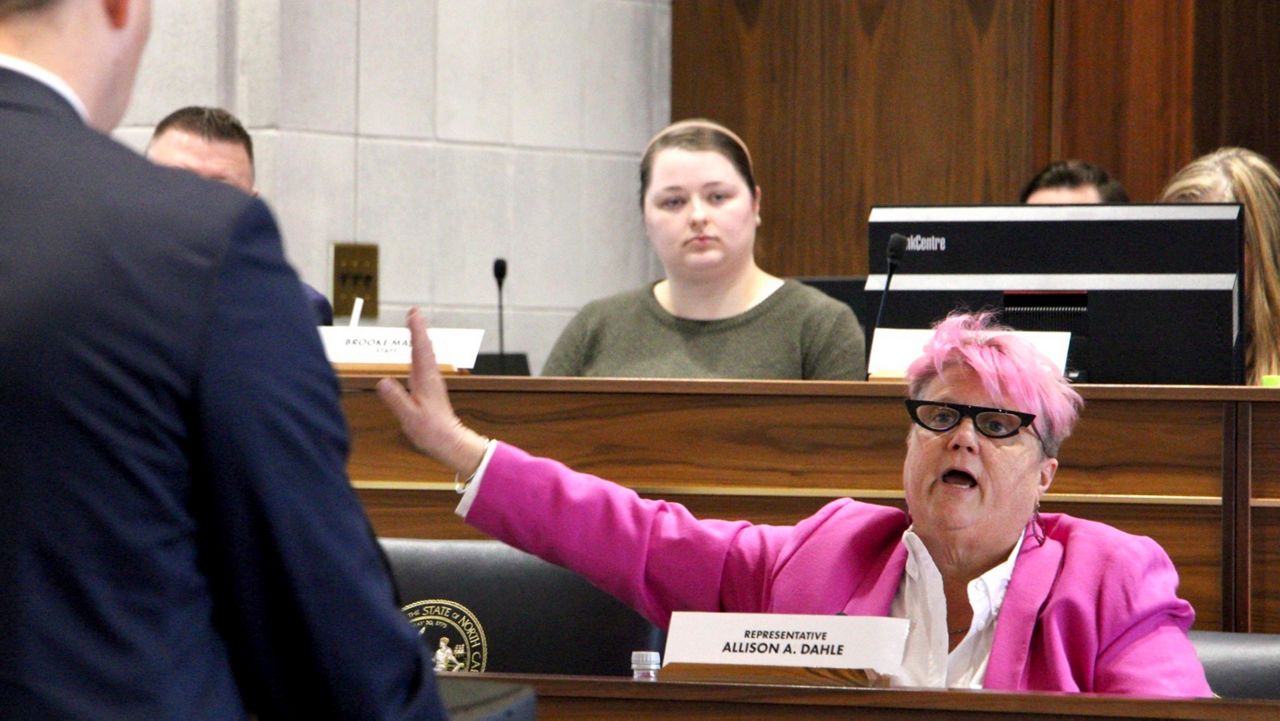RALEIGH, N.C. (AP) — North Carolina lawmakers finalized legislation Wednesday that would prohibit certain gender-affirming care for children and prevent state funds from being used to provide such therapies and procedures.
The House voted 67-46 to accept a version of the measure approved by the Senate on Tuesday. The legislation would bar any medical professional from providing hormone therapy, puberty blockers and surgical gender transition procedures to anyone under 18, with some medical exceptions.
Young people who begin treatment before Aug. 1 could continue receiving such care if it’s considered medically necessary and their parents consent.
The bill, written by Republicans, now heads to Democratic Gov. Roy Cooper, whose veto is likely. Cooper has expressed opposition to bills that target trans youth. The GOP holds narrow veto-proof majorities in both chambers.
If the bill is enacted into law, critics have signaled litigation. Most of the 20 or so states with laws restricting or banning gender-affirming medical care for transgender minors face lawsuits.
A federal judge struck down Arkansas’ ban as unconstitutional last week, and another judge Wednesday temporarily blocked a ban in Kentucky.
The N.C. bill received final General Assembly approval after impassioned speeches by lawmakers. Opponents of the measure consider denying such care to be cruel. They said it would lead to more depression and higher risks of suicide for trans youth.
“You’re saying to them, ‘You don’t matter. We don’t value you. We don’t care about you because you don’t need medical treatment. You don’t need anything because you’re not human,’” said Rep. Allison Dahle, a Wake County Democrat.
The bill's supporters say such life-altering treatments have long-term implications and argued they haven't been fully scrutinized, so such services should wait until someone is legally an adult.
“The whole point of this is to protect our most vulnerable population from these atrocities," said Rep. Ken Fontenot, a Wilson County Republican.
According to leading professional health associations, including the American Academy of Pediatrics, the American Medical Association and the Endocrine Society, gender-affirming care is considered safe and medically necessary.
While trans minors rarely receive such surgeries, they are commonly prescribed drugs to delay puberty and sometimes begin taking hormones before they reach adulthood.
The bill says doctors or other health care providers could have their license revoked for noncompliance with the rules, and separately they could be subject to monetary damages from an adult who alleges the procedure or therapies they received as a child brought them harm.
Also pending on Cooper's desk is legislation approved last week that would prohibit transgender girls from playing in middle school, high school and college sports designated for girls.
And a wide-ranging public school education measure approved by the House later Wednesday would prohibit instruction about gender identity and sexuality in K-4 classrooms. The measure, which is nearing final legislative approval, also would require all public school teachers in most circumstances to alert parents before they call a student by a different name or pronoun.



